Ukraine border guards on the watch for Russian advance
- Published
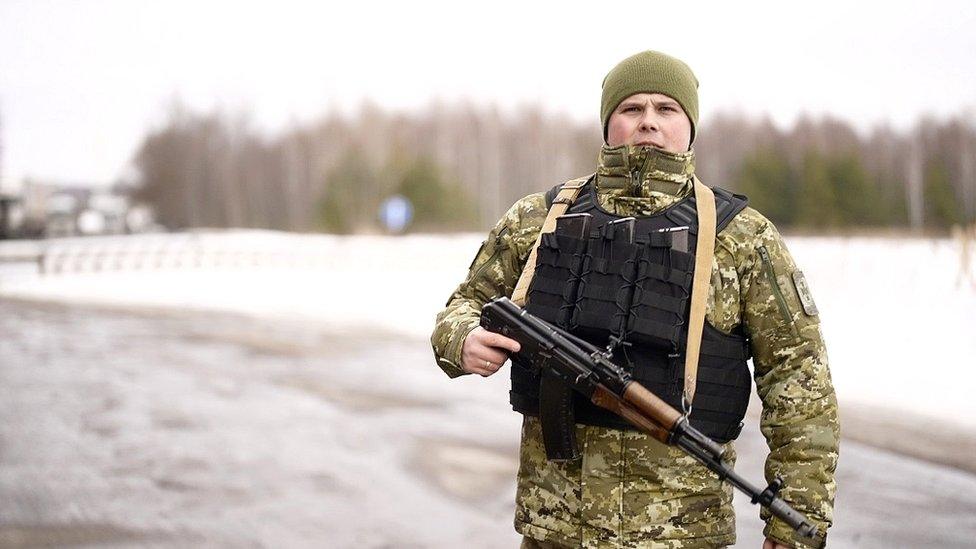
Maj Sergiy Khomenko says he serves to protect Ukraine's independence
The Ukrainian border guards scan the snowy forest for any sign of Russian movement.
They stand guard at the Senkivka crossing, where the Kremlin once celebrated the unity of the Soviet world.
A few truck drivers heading south to the capital, Kyiv, cluster near the Three Sisters monument - a white obelisk erected back in 1975 to mark where the borders of Ukraine, Russia and Belarus meet.
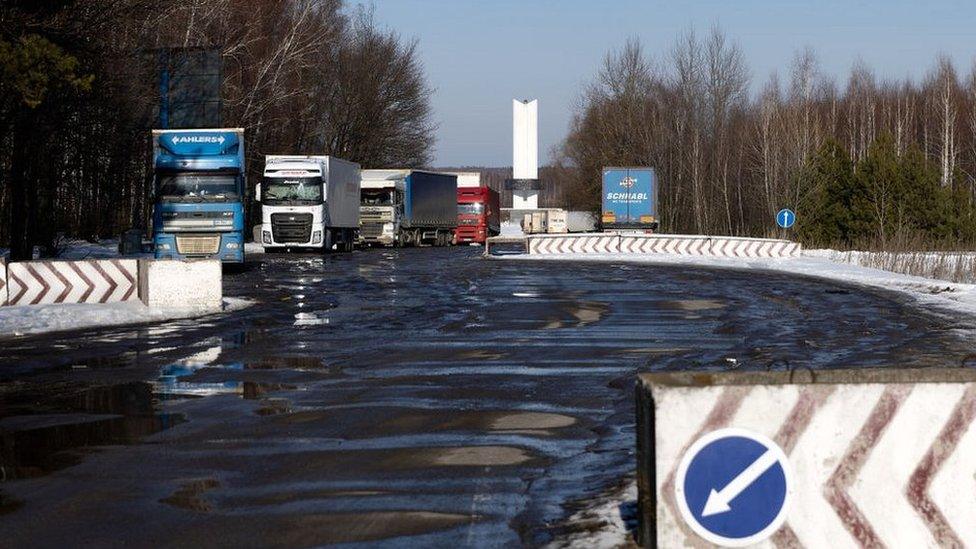
The Three Sisters monument marks the convergence of three borders
Maj Sergiy Khomenko, 29, comes from a military family and grew up in a border village. The current crisis with Russia would have been unimaginable in his parents' youth.
But he serves a Ukraine that has been consistently pushing away from the orbit of Moscow.
"The independence of Ukraine is enshrined in all our documents. It is in our constitution. As a military man, I need to protect this," he tells me.
Maj Khomenko is careful to stress that, for him, the possibility of Russian action on the border is "the same today as it was yesterday".
In other words, he and his men are determined not to be destabilised by the presence of more than 100,000 Russian troops on his country's frontiers.


There are bunkers dug into the ground in front of the border fence. Guards in white, winter camouflage patrol the area.
But while it is impossible to know what forces might be concealed in the forest, this does not look like the place Ukraine would mount a sustained defence against any Russian invasion.
This area is at the heart of what the historian Timothy Snyder calls the "bloodlands" of Eastern Europe where, he estimates, 14 million people were killed in the era of the dictators Adolph Hitler and Joseph Stalin.
While the generation which knew the horrors of the 20th Century is fading, the stories of a landscape dotted with mass graves are part of the inherited memory here.
The hope was that after the end of the Cold War in 1989, an age of peace might descend, that East and West would together remove the threat of mass conflict from the lives of the people here. History has not obliged.
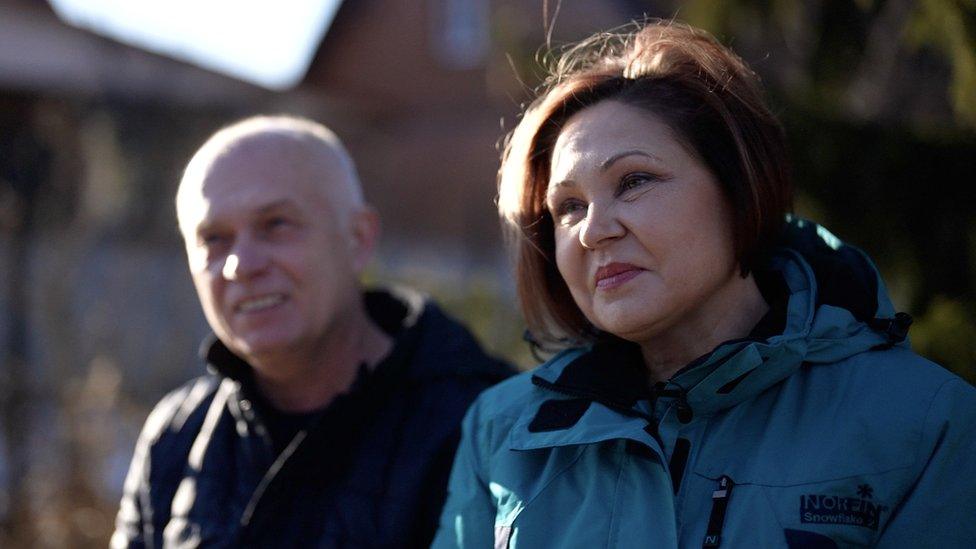
Valeryi and Galyna Sulimov were evacuated from the radiation zone around Chernobyl to the border town of Slavutych
Further along the border, in the town of Slavutych, I met Valeryi and Galyna Sulimov who have been married for 40 years. He is a Ukrainian and she is Russian.
They worked at the nearby Chernobyl nuclear plant until the reactor explosion in 1986 that caused an environmental catastrophe and claimed the lives of 100 people, among them many friends of the couple.
Galyna was on duty that day but was sent home early before the explosion, because it was her birthday.
They moved to Slavutych soon after it was built as a "model" Soviet town to house those evacuated from the radiation zone around Chernobyl.
Each neighbourhood of neat apartment blocks or small wooden houses still bears their old Soviet era names: Armenia quarter, Estonia quarter and many more.
There is a monument on the wide, central square on which the faces of the dead of Chernobyl are etched.
Close by is a mural devoted to the civilian casualties of war, depicting the horrors of the atomic bombing of Hiroshima in 1945 and the bombing of Guernica during the Spanish Civil War. This was to be the place where life would start again.
But for Valeriy and Galyna, this present crisis has caused deep wounds in their personal world.
There are arguments with their relatives in Russia. Their daughter lives there along with Galyna's extended family.
"I think it is a disaster. It changes our lives dramatically," says Valeriy. He cannot see a time of friendship between Russia and Ukraine returning.
Galyna nods in agreement. Her answer highlights the intimate pain caused by big politics: "The situation is so unreal. I can't believe my neighbours could come to my house and destroy it. I can't believe it. It's impossible!"
Her hope is that one day in the future Ukraine and Russia will share democratic values. Maybe then the divisions can be healed. Seen from the border, where rumours of war fly back and forth, it seems an optimistic hope.
Watch: Russia video appears to show tanks leaving Ukrainian border area
Related topics
- Published16 February 2022
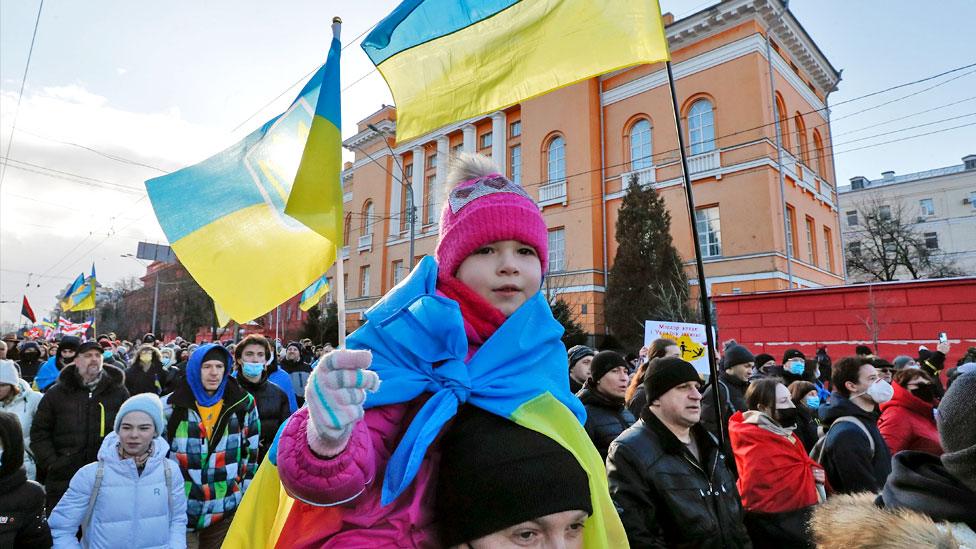
- Published23 February 2022
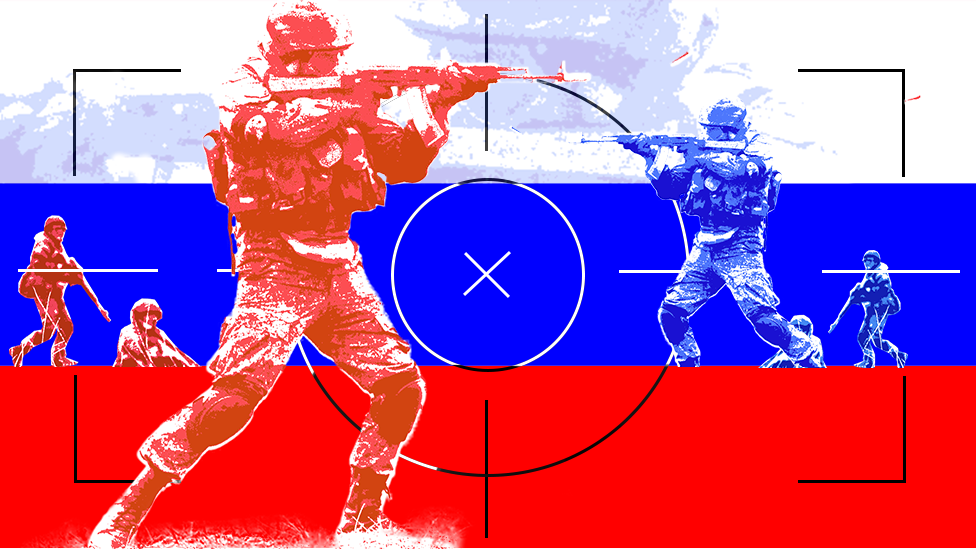
- Published15 February 2022
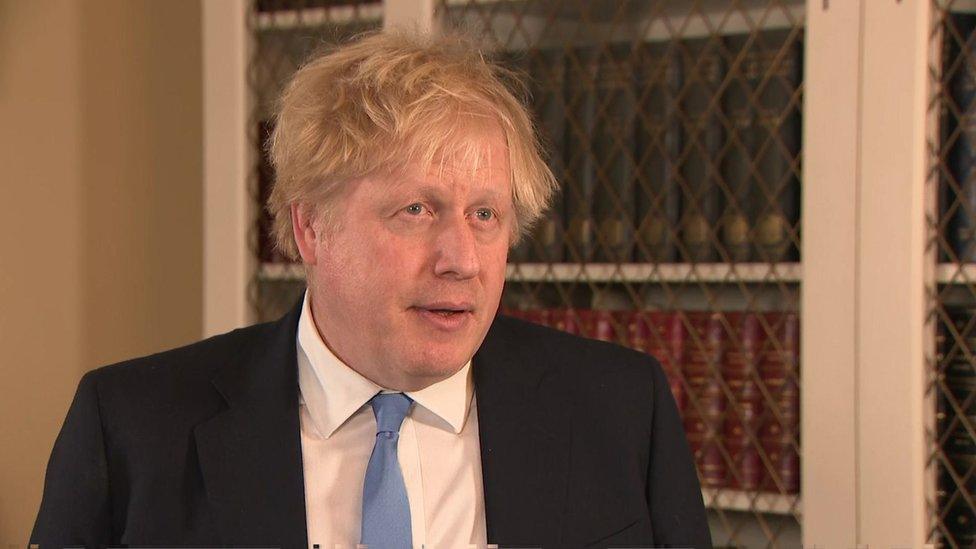
- Published11 March 2022
